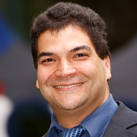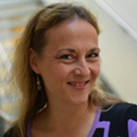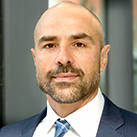Digital Health Forum September 2017

7 Sep 2017
12:00 -20:00
GMT
By invitation only

Cambridge Judge Business School
Trumpington St
Cambridge
CB2 1AG
United Kingdom
Activating and engaging patients in a Digital Age
Cambridge Digital Innovation (CDI) co-hosted a digital health forum with Warwick Business School at Cambridge Judge Business School. The Forum brought together academic staff, clinicians, senior health tech managers, and policymakers to debate issues raised by compelling speakers who shared their experience on patient activation and the use of digital technologies for patient engagement and activation.
The Digital Health Forum brings together senior industry practitioners, policy leaders and academics embedded in the digital health ecosystem to discuss digital innovation and data in healthcare, management, policy and clinical service delivery. Digital Health Forum events are co-hosted by Cambridge Digital Innovation and Warwick Business School.

Programme
Professor Michael Barrett, Cambridge Judge Business School, and Professor Eivor Oborn, Warwick Business School, began with a welcome and introduction of the Forum topic. Particular emphasis was given to the various perspectives of patient engagement and activation held by different stakeholders of the health ecosystem. While taking into account the multiple perspectives it was also key to recognise the need to place the patient at the centre of healthcare, despite the many challenges we face today. One of those challenges is the observation that the groups designing and delivering healthcare are typically living in silos. The Digital Health Forum was created to help foster interaction between these silos, so that groups can come together to exchange ideas and learn from each other across the healthcare ecosystem.
Innovation Agency
Dr Liz Mear, Chief Executive of the Innovation Agency; the Academic Health Science Network (AHSN) for the North West Coast; Chair of the national AHSN Network started the session at 15:00 by talking about a few of the many innovations her team has introduced across the North West to encourage patient activation across the community.
Download Liz's presentation slides
The North West Coast Connected Health Ecosystem brings together partners from health and social care, industry, academia and patient organisations. The focus is on improving health across the North West Coast at the same time as generating economic benefits for the region, partly through the uptake and deployment of digital health solutions. They run cross sector working groups encouraging entrepreneurial minds as well as hackathons to address current challenges.
This is a project which Liz initiated in 2011 which addresses the prevention of hospital admissions for COPD patients. By issuing 250 cheap tablets into the community to monitor health and COPD symptoms, the project has seen a reduction in hospital admissions but also a change in patient behaviour as they feel empowered with knowledge and tools to manage their condition. Challenges are addressing those audiences who are not tech users. For example, Liz’s team discovered that older users preferred having information to hand in a physical form, which culminated in the printing of tea towels with relevant information on it.
A portable ECG which fits to an iPhone and measures pulses though an app called AliveCor has been rolled out to all GP surgeries in the north west, in addition to ‘my diagnostik’ which is being used working with football clubs and other community clubs in the area to pre-detect Atrial Fibrillation. Work has also gone into re-training GPs to identify AF in patients. The above has prevented 256 strokes to date with NICE guidelines.
An example of innovation at its best. It has been designed by children to encourage a ‘patient needs first’ culture across the hospital. It includes innovative solutions such as an innovation space for clinicians to host hackathons and workshops that address the behavioural science aspect of patient needs, and an AI dragon which children can ask the questions to that they don’t feel they can ask the consultant before surgery. 3D printing from patient scans are also used which enable the clinician to fully explain things to the patient before operations and also cuts down the time of the surgery as the surgeons can see the exact size and position of tumours prior to opening the patient up.
Addenbrokes Hospital ICU
Dr Vilas Navapurkar, Consultant in Intensive Care Medicine and Anaesthesia, The John Farman Intensive Care Unit, Addenbrooke’s Hospital was next up and spoke about the frustrations he has with not being able to understand the needs of his patients as many are unable to communicate to him. Having talked about his frustrations to his colleague Tim Baker, Clinical Fellow at Cambridge University Hospitals NHS Foundation Trust, the pair worked together along to develop iPad solutions to improve patient experience for ICU survivors through a human centred design application.
The result of their efforts is MyICUVoice, an app that patients could use daily to report on symptoms and how they are feeling which could then feedback into a database to inform care systems and treatments as well as trends. Outcomes from this were a rapid and significant improvement in contentment of patients, as they are able to communicate, as well as advances in patient care. The technology is now being extended to the Addenbrookes stroke unit and hope is that it will be rolled out further across trusts in the future.
The Economist
Next up was Hal Hodson, Technology Correspondent for the Economist, who talked about the need for transparency by healthcare organisations particularly in the patient records domain. He gave the example of the recent concern regarding patient data shared with Google DeepMind. Although Google have the requisite capabilities to reliably store data with some of the worlds’ best cyber security, there was a need for more consultation and communication with patients regarding the use of their data. This case demonstrates the need for more effective communication as well as systems and processes (to which Google themselves are already contributing) to ensure the autonomy of patients are upheld. Two interesting innovations mentioned were Apple’s ResearchKit, an open source framework for making it easier to enrol patients and conduct studies, and Carekit, another open source framework for developers to build apps to enable patients to manage their medical conditions.
University of Oregon
We were honoured to also hear, via video link from the US, from Judith Hibbard – Professor of Health Policy at the University of Oregon. Judith has been instrumental in the creation and development of the ‘Patient Activation Measure‘ (PAM) score. The PAM score is a way to assess the capability of patients for managing their own healthcare. Judith highlighted some of the research behind the PAM score as well as the number of ways in which it can be used to improve the delivery of health care. Crucially it is important to note that patients can move between activation levels, and with support can increase their ability to take on more of their own healthcare successfully. Both high touch and hi-tech strategies (eg virtual care) which can be used to activate patients was also discussed.
Breast Cancer Consultant
On return from a coffee break the audience was blown away by Liz O-Riordan’s passion for innovating around patient engagement driven by her personal experience. As a breast cancer Consultant who was diagnosed with breast cancer herself, Liz talked about her realisation of the immense amount of technological support for cancer now but how she and many of her work colleagues, were unaware of its value in their daily work. As a consultant she had the notion that she knew most, if not everything, of what patients needed to know about their illness. It was only after her diagnosis that she came to recognise that there was so much more that patients needed to know. Liz stressed that there is a need for networks to enable patients talk about the darker sides of cancer that cannot be talked about with friends or family. Digital technologies can play a key role in aiding such communication along with addressing the practical issues such as reminders for medication. One of Liz’s key messages was that many innovations are developed to make clinicians lives easier, when actually the patient is the client who should be at the heart of all decisions about their care, both clinical and non-clinical.
The final session of the afternoon involved the audience being split into breakout groups to co-produce with the audience what new knowledge and research could be usefully developed around patient engagement and activation.
Event organisers
Michael Barrett
Academic Director, Cambridge Digital Innovation
Michael is Professor of IS and Innovation Studies and Director of Research at Cambridge Judge Business School. He is also Distinguished Visiting Professor of Innovation at the Stockholm School of Economics. He has served as Head of the Organisation Theory & Information Systems group, Director (Associate Dean) of Programmes, and Director of the MPhil in Innovation, Strategy & Organisation programme. He is also a Distinguished Scholar, OCIS Division, Academy of Management. Professor Barrett is currently Co-Editor-in-Chief of the Information & Organization journal responsible for the RICK section. He has consulted with Oracle Canada where he won the Most Valuable Employee award. He continues to provide executive education for many organisations including Thomson Reuters, Statoil, Bank of China, China Mobile, BT, IBM, HP, PWC, Pfizer, Shell, and the World Health Organisation.




